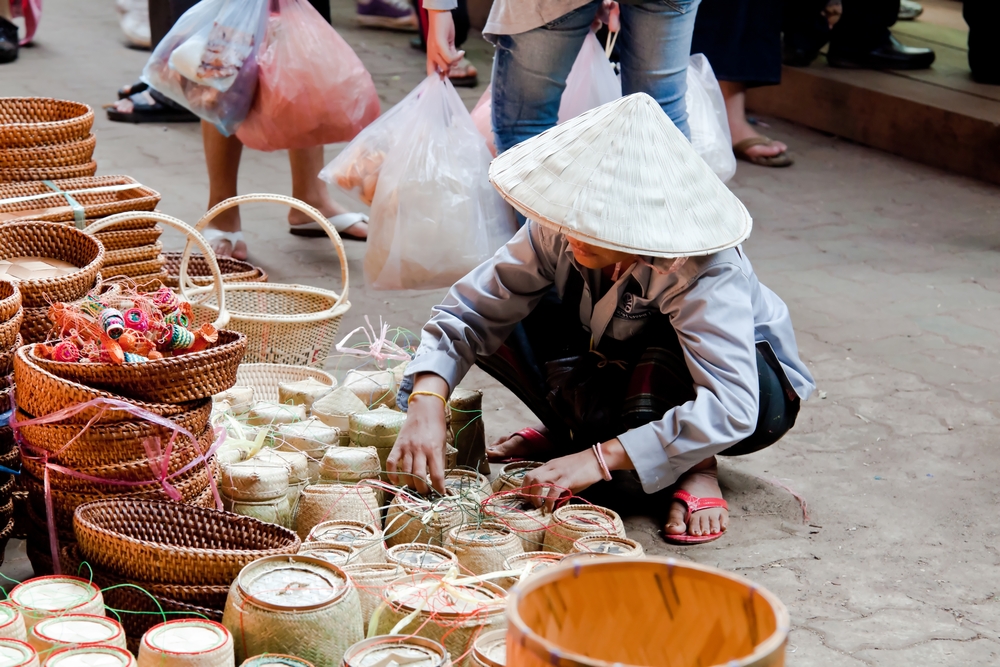“Can The Relationship Between You and Your Thai Love Really Work? Or Are You Just Fooling Yourself?”
"In this 7-part series Nathamon reveals the secrets of why some Western - Thai couples enjoy loving, life-affirming relationships - while others crash and burn in bitterness. Understanding these secrets will give you the keys to unlock true passion and intimacy – and rejuvenate your love life!”
Part #2… The Expression of Power – What Your Thai Partner Will NEVER Tell You
In the last issue, I shared the first key to understanding what makes your Thai lady “tick:” You were brought up to value being an individual – and she was brought up to value being in harmony with a group, particularly with her family.
I showed you how not understanding this basic difference between you can lead to misunderstanding, disagreement, and in extreme cases, a stormy end to your relationship.
We talked about “culture” as the set of assumptions or expectations about life that determines how people in any given society behave. I’m going to continue that discussion in the next several articles, to help you really get inside your Thai lady’s head and understand that she is not trying to be difficult on purpose! Quite the contrary, she is doing everything she was brought up to do to get along with you.
If you’ll invest the time in understanding the differences between your cultures, you can develop patience, and if you’re willing to be open and curious you can initiate conversations that will help her understand that YOU’RE not trying to be difficult on purpose, either!
And if both of you can relax, explore, and communicate about the things you each take for granted about “the way life is,” you’ll find your relationship more loving, more delightful, and more exciting.
So let’s talk about the second key cultural difference – the nature of power, how it shows up in the way people act toward each other, and how it will impact your relationship with your Thai lady.
The Second Key: “Equality” Versus “Power”
Roger and Lia married after a whirlwind courtship, and a year later are beginning to get on each other’s nerves, especially when they’re socializing.
Used to more assertive, self-confident women, Roger is alarmed at Lia’s tendency to put herself down, especially when she visits with his family. It makes him particularly uncomfortable when they’re visiting his older sister, when Lia acts more like a servant than a guest, offering to do his sister’s laundry, clean the bathrooms, do the cooking, and take every opportunity to let his older sister completely dominate her.
“My sister can be pretty self-absorbed,” he says. “We were never that close, but Lia acts like my sister is a queen – going way beyond just good guest manners and letting my sister take advantage of her. It’s embarrassing, and I’m irritated that my sister thinks my wife is somebody she can treat so badly.”
For her part, Lia can’t understand how Roger can be so disrespectful to his older sister. When he brought up how much Lia was doing to help – in front of everybody – she was embarrassed, hurt, and so angry that she had to apologize to Roger’s sister for his bad behavior. “His sister is older, so he needs to be a better brother,” she says.
“I didn’t realize how cold he could be until I saw how he acts with his sister and her family.”
Is this relationship doomed to failure? Maybe. But if they can begin to see the hidden dynamic of “power” at work in all of their mutual relationships, then their behavior will start making sense.
You see, neither one of them is “wrong,” or “to blame.” It’s just cultural.
Her culture views the dynamics of power in relationships differently than yours does. It’s not something that’s even talked about. Everybody knows that power, and the perception of power, drives how people treat each other.
Let me show you what I mean, using a simple chart to compare Thai cultural views of power with yours.
Your Western View of “Power”
| Her Thai View of “Power |
|
|
|
|
|
|
|
|
|
|
| |
|
|
|
|
|
|
So what do these seemingly opposite cultural views about power have to do with your relationship?
Let’s look at Roger and Lia’s situation again, to see if understanding this “power dynamic” can offer any insight.
In Roger’s world, his sister is just his sister – an equal member of his family, with the same status, rights and privileges as he has, and worthy of no more or less respect.
In Lia’s world, not only does Roger have higher “status” than Lia does (because he is her husband), Roger’s sister is older, therefore “higher-ranking” in the family and deserving of more respect and deference. Roger “knows” Lia is his sister’s equal – not her inferior, and he is surprised when she doesn’t act that way. Lia “knows” Roger’s older sister is “more important” than she is, and she is surprised when Roger objects to her acting that way.
In your relationship with your Thai woman, you might find her passive about decision-making, and feel that you have to make every decision, no matter how small. “Where do you want to go for dinner?” – a simple question that any Western woman would recognize as an opportunity to negotiate – is a question that your Thai lady might be uncomfortable answering, because she knows that your “position” in the family is higher, therefore the decision is yours.
In other words, her quiet, deferential, and shy behavior is a reaction to your status and position.
Not only that, when you meet people who are important (and therefore of higher status) to her, like her boss, her parents, her priest – even authority figures like policemen and government officials – she will expect you to show the same respect she does, and will become embarrassed – even offended -- if you don’t. If her uncle is an alcoholic; if her brother is a degenerate gambler; if the policeman is corrupt – you, as a Westerner, feel justified in showing your disrespect.
After all, to you respect is earned.
Think about how the U.S. culture treated its president for being unfaithful to his wife. He was mocked, ridiculed, and publically humiliated with lurid descriptions of his private parts.
In Thailand, such behavior of an important official would not only be politely ignored – it would be expected. Nobody would openly express such disrespect for such an important man.
That would be extremely bad manners.
It may be tempting to take advantage of the power you hold with your Thai partner. Who wouldn’t want to be treated with such deference, such obedience, and such service?
But beware.
Part of this “power dynamic” is the Thai tendency to have a “long fuse” and an even longer memory. Her cultural upbringing will drive her to tolerate your bad behavior only so long – until the only way to resolve it will be not through conversation or negotiation, but through “replacing the person at the top” – YOU.
This “power dimension” is only one of several key cultural differences between you and your Thai lady. The success of your relationship will depend on your ability to notice those cultural differences when they arise – and they most certainly will.
If you can be patient, understanding, and flexible, you can gently introduce these key cultural differences and discuss them with your Thai partner, rather than argue about who is right and who is wrong. Part of the joy of any relationship is exploring your differences – rather than just sharing what you already have in common.
In the next article in this series, I’ll share another powerful cultural secret; the concept of dealing with uncertainty, and how understanding this secret will help you:
- Accept that you and your Thai lady may never see eye-to-eye on matters of rules, regulations, or religion – and why that is perfectly healthy for your relationship.
- Realize that you will each deal differently with the stress that uncertainty can bring.
- Develop trust in your Thai lady, and help her develop trust in you, by openly discussing your different approaches to the uncertainties of life.
- And much, much more!
Let Us Help You
All of the Thai ladies who participate in Thai Lady Date Finder™ are looking for a decent, honest, reliable guy -- just like you -- to build a happy, successful, and long-lasting relationship with.
How do we know?
- We meet each and every one of them.
- We conduct background checks.
- We verify that they are who they claim to be.
So any time you meet someone on our exclusive, members-only website, you can be sure you’re chatting with a genuine, honest, respectable – as well as beautiful and sexy – Thai woman who is as eager to meet you as you are to meet her.
And we’d be delighted to introduce you and help you get to know her in person. When you’re ready to travel to Bangkok, take advantage of Thai Lady Dating Events™ to plan, organize, and coordinate your dates in a fun, safe and hassle-free way.




